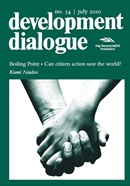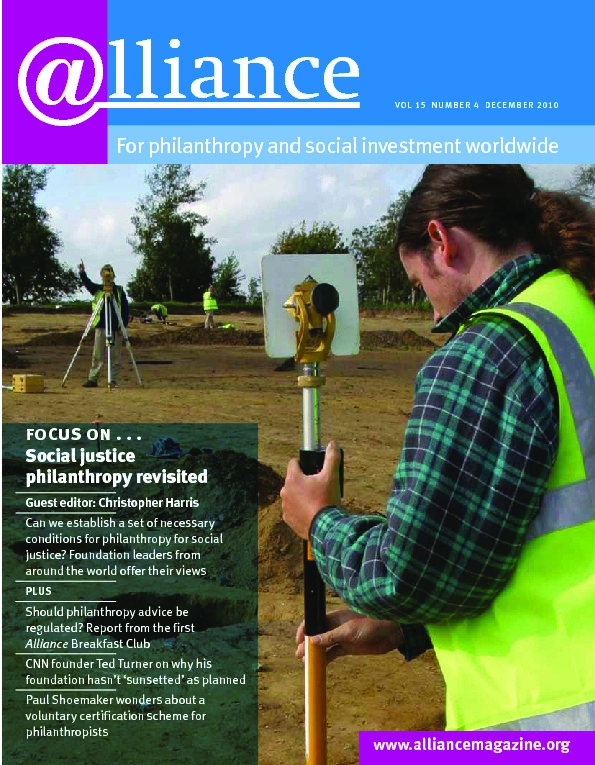 The primary purpose of a book review is to offer a view on whether it’s worth reading. My answer to this is a resounding YES! Kumi Naidoo is a comrade, friend and brother so I am by no means unbiased in my assessment. Yet, while I summarize the many points where Kumi’s analysis is spot on, I also highlight critical areas where more could and should have been offered.[1]
The primary purpose of a book review is to offer a view on whether it’s worth reading. My answer to this is a resounding YES! Kumi Naidoo is a comrade, friend and brother so I am by no means unbiased in my assessment. Yet, while I summarize the many points where Kumi’s analysis is spot on, I also highlight critical areas where more could and should have been offered.[1]
The book’s premise is that the world is at both a literal boiling point – given the convergence of the global food, fuel, financial, climate and other crises – and an emotional boiling point among ordinary citizens across the globe. Underlying this is the more profound challenge of addressing the deep democratic deficits in all countries around the world, and the deficit of participatory governance generally, and especially in international and global arenas of decision-making.
The key to making good these deficits, and thus transforming the crises to opportunities (‘cris-tunities’), is the unleashing of non-violent direct action by millions of citizens around the world. In Kumi’s own words, the corresponding key message of this book is: ‘if we are to deliver justice, then civic groups must become a lot better at focusing on the many things that unite us, while deciding to respectfully disagree on the finer points of difference between us’ (p195). Lessons for building more effective coalitions among civil society organizations (CSOs) which mobilize ordinary people to act, drawn from the Global Call to Action Against Poverty and Global Campaign for Climate Action, will enable real progress against global problems like poverty, climate change and conflict.
One of the most consistent and compelling themes that Kumi has promoted around the world and in this volume is that citizens and CSOs need to not only ‘think globally and act locally’ but also ‘act globally while thinking locally’. Because the locus of power and decision-making has gravitated upwards, working solely at the grassroots, while necessary, will not be sufficient. From the local to the global, citizens and CSOs must operate across micro, meso and macro levels to generate social change. In particular, CSOs need to focus much more on macro-level issues, on changing the structure and nature of institutions and governance. This requires the largest investment and the longest time to achieve results, so most CSOs operate on the micro level, where it’s easier to see results and attract donors. CSOs thus tend to ‘lose sight of the big picture and mitigate effects rather than focusing on causes’.
CSOs must also demonstrate accountability. If they strive to hold institutions accountable, they must be accountable themselves, to their donors, their mission and, most of all, to the communities they serve.
The three most critical challenges for citizens and CSOs remain poverty, climate change and violent conflict. But our approach needs to be bolder: for example, reducing poverty is not enough, we must eradicate it. Powerful action by citizens and CSOs and their allies from other sectors who are committed to transformative change can make the difference. If international NGOs are to be part of the solution rather than part of the problem, they must transform themselves into more participatory bodies. They must become movements rather than organizations.
So what is missing? Global finance is the first area on which I would have liked much more critical attention. There is perhaps no other issue where ramping up efforts at the macro level of governance is more needed, yet citizen and CSO engagement remains minimal. This is partly because the focus remains on institutions like the International Monetary Fund and the World Bank, but more importantly because of our own lack of capacity and confidence in demanding a global financial system that is derived from the needs of ordinary citizens and the goals of planetary survival.
A second area on which I would have liked more focus is the future of the nation-state system, which is being strained by the asymmetric results of globalization. How should citizens and CSOs respond? Even if we believe states and governments will remain central to our future, might the nation-state system itself need to be transformed?
Of course, no single book can address all issues. That is why I believe the main value of Boiling Point is to catalyse deeper, more critical and more creative thinking and action. Then Kumi’s hope that, acting ‘within the space we know as civil society’, we can bring about the necessary changes, will be realized.
1 I want to express my deep appreciation to Kalle Speer for his assistance in the writing of this book review.
Sanjeev Khagram is Professor of Public Affairs and International Studies, University of Washington, and Lead Steward at iScale (Innovations for Scaling Impact). Email skhagram@scalingimpact.net
Boiling Point: Can citizen action save the world?
Kumi Naidoo Dag Hammarskjöld Foundation Free
To download
http://www.dhf.uu.se/publications/development-dialogue





Comments (0)